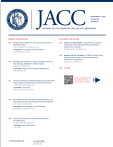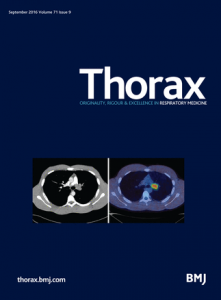 A number of readers contacted us last week to let us know that their email alerts had stopped arriving. We’ve now fixed that problem, which had to do with a software update. With apologies for the technical glitch, here’s a roundup (from a Friday post, which wasn’t delivered by email) of posts for which emails didn’t go out, in case you missed them: Continue reading A significant cardiology retraction; second retraction from Case Western biologist; and more you may have missed
A number of readers contacted us last week to let us know that their email alerts had stopped arriving. We’ve now fixed that problem, which had to do with a software update. With apologies for the technical glitch, here’s a roundup (from a Friday post, which wasn’t delivered by email) of posts for which emails didn’t go out, in case you missed them: Continue reading A significant cardiology retraction; second retraction from Case Western biologist; and more you may have missed
Weekend reads: Macchiarini guilty of misconduct; controversial PACE data to be released; gender bias at conferences
 This week at Retraction Watch featured the return of a notorious fraudster, and plagiarism of plagiarism. Here’s what was happening elsewhere: Continue reading Weekend reads: Macchiarini guilty of misconduct; controversial PACE data to be released; gender bias at conferences
This week at Retraction Watch featured the return of a notorious fraudster, and plagiarism of plagiarism. Here’s what was happening elsewhere: Continue reading Weekend reads: Macchiarini guilty of misconduct; controversial PACE data to be released; gender bias at conferences
Posts you may have missed: Student loses PhD, controversial data to be released
 We’ve got some late-breaking news to report — plus, it’s been a busy news week overall, and some of our email alerts didn’t go out, due to a programming glitch. Below, here are some recent stories you may have missed.
We’ve got some late-breaking news to report — plus, it’s been a busy news week overall, and some of our email alerts didn’t go out, due to a programming glitch. Below, here are some recent stories you may have missed.
A tribunal at Queen Mary University of London has decided to disclose the data from the controversial PACE trial, which tested various therapies for chronic fatigue syndrome. For critics of this study, this has been a long-awaited decision.
What’s more, Continue reading Posts you may have missed: Student loses PhD, controversial data to be released
U Colorado revokes PhD of former “golden boy”
 In a rare move, the University of Colorado has revoked the PhD of a former student in a pharmaceutical research lab, following an investigation that raised concerns about the integrity of his work.
In a rare move, the University of Colorado has revoked the PhD of a former student in a pharmaceutical research lab, following an investigation that raised concerns about the integrity of his work.
According to The Denver Post, Rajendra Kadam’s degree has been revoked by the University of Colorado Board of Regents.
Last year, an investigation by the University of Colorado Denver into Kadam’s research recommended retracting 10 papers. As we reported at the time, the report flagged eight additional papers co-authored by Kadam whose data could not be validated, raising “concerns as to the scientific validity and integrity” of the material.
Last month, a University of Colorado Denver spokesperson told us Kadam was no longer affiliated with the university; today, Ken McConnellogue, the vice president for communication, confirmed that his degree has now been revoked entirely.
McConnellogue acknowledged that it was a strong move: Continue reading U Colorado revokes PhD of former “golden boy”
Spanish lab admits to image manipulation, retracts one paper, corrects another
 A group has retracted one paper and corrected another in the Journal of Biological Chemistry (JBC) for image manipulations.
A group has retracted one paper and corrected another in the Journal of Biological Chemistry (JBC) for image manipulations.
Last author José G. Castaño told us the manipulation occurred at the Universidad Autónoma de Madrid, where he and one other co-author are based. He declined to name who was responsible.
Here’s the retraction notice for “Cytomegalovirus promoter up-regulation is the major cause of increased protein levels of unstable reporter proteins after treatment of living cells with proteasome inhibitors:”
Continue reading Spanish lab admits to image manipulation, retracts one paper, corrects another
Swiss, French institutions investigating several papers

 Institutions in France and Switzerland are investigating figures in several molecular biology papers, according to a joint press release published today.
Institutions in France and Switzerland are investigating figures in several molecular biology papers, according to a joint press release published today.
Unfortunately, there’s not much more we can tell you about the investigation — the press release doesn’t specify the names of researchers, journals, or even the area within molecular biology that’s under scrutiny.
The National Center for Scientific Research (CNRS) in France will lead the inquiry, with contribution from ETH Zürich in Switzerland. Molecular biology researchers from both institutions were involved in the flagged publications, an ETH Zürich spokesperson told us.
The ETH Zürich spokesperson added: Continue reading Swiss, French institutions investigating several papers
Authors didn’t generate key brain images, probe finds
 A neuroscience journal has issued a retraction after discovering some of the paper’s integral images didn’t originate from the authors’ labs.
A neuroscience journal has issued a retraction after discovering some of the paper’s integral images didn’t originate from the authors’ labs.
The retraction notice — for a study about a condition once known as “water on the brain” — cites an investigation by the journal’s publisher, Frontiers, which determined that the figures were not “duly attributed.” The authors say they agree with the retraction.
Here’s the retraction notice for “Revisiting hydrocephalus as a model to study brain resilience,” published by Frontiers in Human Neuroscience: Continue reading Authors didn’t generate key brain images, probe finds
Biologist loses second paper — again, for unvalidated figures
 A researcher at Case Western Reserve University in Ohio has retracted a second paper after a review found the figures didn’t match the original data.
A researcher at Case Western Reserve University in Ohio has retracted a second paper after a review found the figures didn’t match the original data.
Last year, we reported on a previous retraction of a paper co-authored by biologist Alan Levine in Inflammatory Bowel Diseases, which was pulled for the exact same reason; even the retraction notices use similar language. The first author on both papers is Debasmita Mandal, also listed at Case Western Reserve University.
Here’s the retraction notice for “REDOX regulation of IL-13 signaling in intestinal epithelial cells: usage of alternate pathways mediates distinct gene expression patterns,” published by Cellular Signalling: Continue reading Biologist loses second paper — again, for unvalidated figures
Author objects to retraction of heart study, implies industry played role
The Journal of the American College of Cardiology (JACC) has retracted a recently published paper that questioned the effectiveness of a treatment for irregular heartbeat, against the last author’s wishes.
Andrea Natale, the study’s last and corresponding author and Executive Medical Director of Texas Cardiac Arrhythmia at Austin, took to social media today to express his frustration in the retraction of the July paper, which showed electrical rotors were less effective at fixing irregular heartbeat than other treatments. On Twitter, Natale implied industry played a role in its demise.
However, according to the retraction notice, the paper was felled by problems with randomization; Natale has admitted that some patients were removed from the analysis after one center included them incorrectly.
Here’s the retraction notice for “Impact of Rotor Ablation in Nonparoxysmal Atrial Fibrillation Patients Results From the Randomized OASIS Trial:” Continue reading Author objects to retraction of heart study, implies industry played role
Despite apology, bagpipes study not slated for retraction
It’s not often that a paper elicits an apology — but that’s just what happened when family members first learned a bagpipe musician died from inhaling mold and fungi from a case study reported in a journal. The hospital has since apologized; the journal, however, told us it is not planning to issue a retraction.
The University Hospital of South Manchester NHS Foundation Trust in Wythenshawe, UK, has apologized and launched an internal investigation into the case report after the family’s distress was extensively covered by the UK’s mainstream media, such as The BBC, The Independent, The Daily Mail, and The Telegraph.
There seem to be conflicting accounts over whether any consent was obtained to publish the report. The Thorax paper says the patient gave consent, and according to Gisli Jenkins, co-editor-in-chief of the journal and a professor of experimental medicine at Nottingham University in the UK, consent was sought from the family. But the patient’s daughter told us that neither the next of kin nor the patient were approached for consent.
The release of the report on August 22 was “completely unethical,” said Erin Tabinor, daughter of musician Bruce Campbell and a makeup artist in Liverpool, UK. Tabinor told us that the family wasn’t aware that playing bagpipes was the cause of Campbell’s death: Continue reading Despite apology, bagpipes study not slated for retraction

